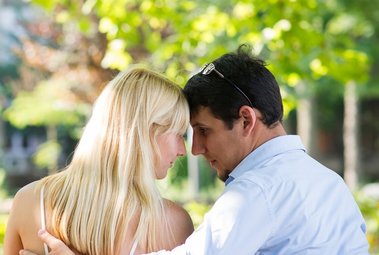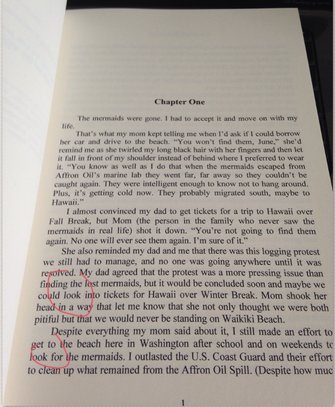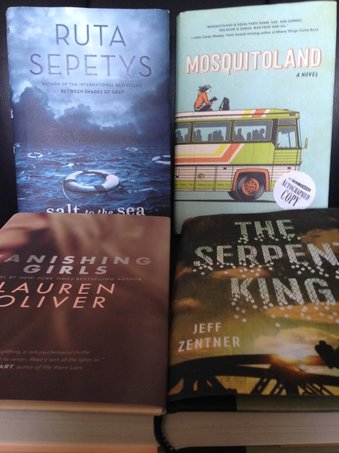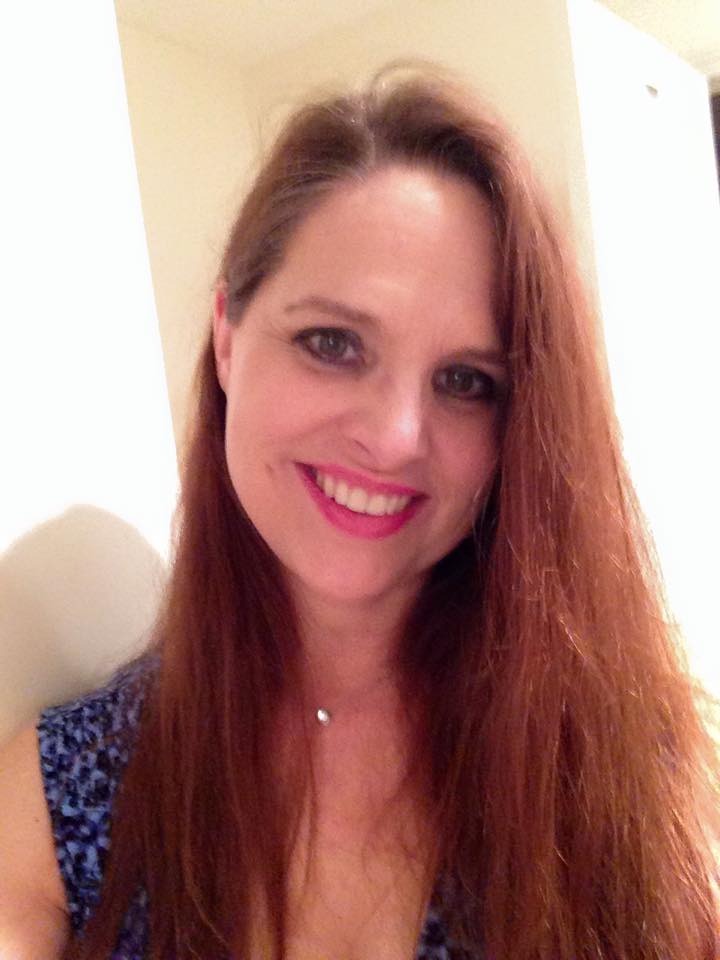 I recently finished a novel by a bestselling YA author. This blog post isn’t to knock her writing by any means, which is why I'm not mentioning her name or the book title. The book was entertaining contemporary teen fiction. It didn’t have a big plot, but it was full of interesting, loveable characters interacting with each other. While it’s not my favorite kind of book, I didn’t dislike it either. The reason I bring up this book is because of something in the writing that surprised me. This author used the word “look” a lot. So much. All the time. I just looked at her. She looked at me and said… He gave me a look. I looked at him, feeling… Why is this a big deal? Well, I’ve been writing for a while now. With writing comes lots of workshops, classes, reading books about writing, critiques of my work, etc. Something that came up early on with an editor of my work (and continues to show up in articles about how to write well) is to limit the use of non-descriptive words like “look”. Other words in that ranking are “turn” and “said”. These are words that are used too much and don’t offer a lot to make a work sparkle with lovely prose.  If two people are in a conversation, I feel it’s unnecessary to write that they are looking at each other. They should be looking at each other. That’s a given. What is more interesting is when someone looks away. He looked at her and said, “I love you.” is much less interesting than His gaze dropped to the ground, and he kicked at a pebble before saying, “I love you.” Or maybe returning his gaze to her might be interesting, if he’s been looking elsewhere. After being fixated on picking at his fingernails, he raised his eyes to look directly into hers and said, “I love you.” Now, in our everyday vernacular, we use the word “look” all the time. It’s easy. Teens and young adults especially use it. I hear my daughters all the time telling me about how someone gave them “a look” and that usually means something bad. I myself have said to my 16-year-old, “Wipe that look off your face” or “What is that look supposed to mean?” So, it’s okay to use the word once in a while in your fiction to make it ring authentic. It’s overuse that bothers me, especially when used without any qualifiers to spice it up. I strongly feel that a word this bland should be avoided or used sparingly. The book I mentioned above was an audiobook, and it didn’t help that the narrator almost emphasized the word “looked” every time it was used. It got to a point that I would chuckle. And each time she specifically said “he looked at me” or “she looked at me” I would start singing. Why? Because a while back I wrote a song called “He Looked at Me”. It was something I wrote when an actor in the show I was in glanced at me in the middle of his song, possibly indicating that he just might have a little crush on me. I wrote this song about how I obsessed over it. There’s a second verse about how I completely misconstrued that look, and it really meant nothing. Someday I hope to put this song in a musical. Yes, this is a video of me singing make-up-less and a cappella in my car. No, I wasn't driving.  Okay, tangent over… back to the book by the famous author. Surely, this had to be one of this author’s first books. Nope. I researched her and found that it is one of her most recent books after about a dozen. Not indie or self-published, either. All with Penguin/Random House. So, this makes me wonder if her editors are less ‘hands on’ now that she is super successful and didn’t push her to rethink the excessive use of this word. Or did she simply like it this way and insist on leaving all of them? For fun, I thought I’d do a little challenge. I went through my Juniper Sawfeather books and No One Needed to Know to see where my first use of the word “look” shows up. Okay, embarrassing… Cry of the Sea, literally the first line: “You ready to see how the next big change in your life is going to look?” I use the word five more times over the next 12 pages, always as an action, such as: “Terrific. When I get back next week, we can look it over together.” All right. This was my first book as D. G. Driver. Let’s see how I do with more recent work. Whisper of the Woods, first use of the word ‘look’ is again on page 1: My dad agreed that the protest was a more pressing issue than finding the lost mermaids, but it would be concluded soon and maybe we could look into tickets for Hawaii over Winter Break. The first time I use it the way I’m arguing against above, however, is on page 12: “I didn’t think anyone would leave before the New Year started.” He looked back at me. “Guess I was wrong.” I should point out that that there are three people in this conversation, and he was returning his focus to Juniper. Echo of the Cliffs. Page one - again: He was coming after me, but I didn’t look up to see his progress. On page 10, I wrote this: I gave her a sharp look to try to get her to shut up about it. I’m pretty sure I thought that by adding the adjective “sharp” made a difference. Not sure if it did. Maybe I could have used a different word choice altogether. No One Needed to Know. Last line of page one (I almost made it): “Getting closer every second. Looks like he’s going to ram us. Shoot him quick or brace for impact!” On page 3: Donald looked at me and adjusted his glasses is followed by a paragraph describing Donald’s complicated facial expressions that are caused by his Autism. Am I defending my writing too much? Possibly. I do make a point during revisions to use my ‘find’ and ‘replace’ buttons to seek out all my uses of “look” or “looked” and replace them with something more interesting or that convey more information. For example, instead of “I looked at him” might be “I gawked at him.” I may work harder at this for future projects. Okay, so let me extend my challenge. I’m going to pull a couple bestseller YA novels off my shelves and find the first use of the word ‘look’. Salt to the Sea, Ruta Sepetys, page 15: I couldn’t stand to look at her, at the streaks of dead Russian splattered down her sleeve. A few pages earlier she uses the word ‘scanned’ as opposed to ‘looked’. Mosquitoland, David Arnold, p. 5: “You can go on back,” said a secretary without looking up. Vanishing Girls, Lauren Oliver, p 8: I set it down next to a platter of cold pigs in blankets, which look like shriveled thumbs wrapped in gauze. A couple pages earlier she writes, Dara’s eyes flick to mine instead of using the word ‘looked’. The Serpent King, Jeff Zentner, p. 3: Dill set his jaw and looked at her. “I don’t want to. I hate it there.” In conclusion, here’s what I think. In some cases ‘to look’ is the right verb for the sentence. I feel like this is especially so if surrounded by other descriptors or included in a compelling sentence or paragraph. In most cases, however, this dull word choice could be replaced by something much more interesting. I definitely feel like having it used too often sounds repetitive and takes away from a story. Look at your WIP (see what I did there?) and see where you might consider some changes.
I’d love to know your thoughts. Comments are always welcome. |
D. G. DriverAward-winning author of books for teen and tween readers. Learn more about her and her writing at www.dgdriver.com Archives
July 2024
Categories
All
|
Author D. G. Driver's
Write and Rewrite Blog
“There are no bad stories, just ones that haven’t found their right words yet.”
A blog mostly about the process of revision with occasional guest posts, book reviews, and posts related to my books.


 RSS Feed
RSS Feed